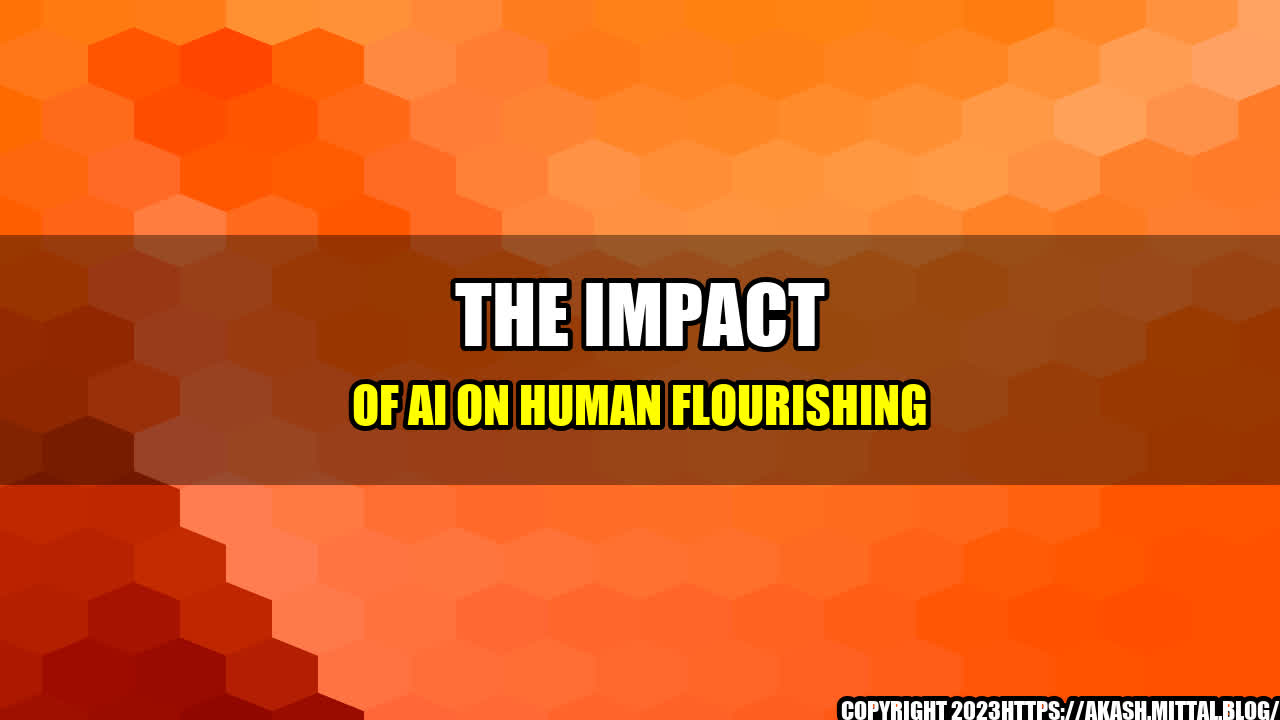Imagine waking up in the morning to find a robot in your kitchen cooking breakfast for you, while a virtual assistant schedules your appointments and an AI-powered car drives you to work. This may sound like something out of a sci-fi movie, but it's already becoming a reality.
"Artificial intelligence (AI) is the next big thing that will change everything," said Satya Nadella, CEO of Microsoft. "It's not just about what we build, but how we build it."
The impact of AI on our lives is already profound and will only continue to grow in the coming years. As machines become more intelligent and capable of performing tasks traditionally done by humans, we will see significant changes in the way we live, work, and think. Here are just a few examples:
- Automation: AI-powered robots are already replacing humans in industries such as manufacturing, logistics, and agriculture. This will lead to lower costs and increased efficiency, but also to job displacement and the need for new skills and education.
- Personalization: AI algorithms are being used to personalize everything from news feeds and advertisements to healthcare and education. This will improve the user experience and outcomes, but also raise concerns about privacy, bias, and manipulation.
- Augmentation: AI tools are being developed to enhance human performance in areas such as creativity, decision-making, and communication. This will unlock new possibilities and opportunities, but also raise ethical and social challenges.
So, what does all this mean for our well-being and flourishing as human beings?
1. We need to be proactive and intentional about how we use AI.
As with any powerful technology, AI has both benefits and risks. We need to be aware of the potential downsides and work to mitigate them, while maximizing the positive outcomes. This requires a collaborative effort from all stakeholders, including researchers, developers, policymakers, and the general public. We also need to ensure that AI is designed and deployed in a way that respects our values, rights, and dignity as humans.
2. We need to adapt and learn new skills to thrive in the AI era.
As AI automates routine and repetitive tasks, we will need to focus on skills that are uniquely human, such as creativity, empathy, and critical thinking. We will also need to adopt a growth mindset and embrace lifelong learning, as the pace of technological change accelerates. This requires a shift in our education and training systems, as well as our cultural norms and values. We also need to ensure that AI is inclusive and accessible to all, and that we do not create new forms of inequality and discrimination.
3. We need to cultivate our sense of purpose and meaning in the AI era.
As we delegate more tasks to machines, we run the risk of losing our sense of purpose and meaning in life. We need to rediscover and redefine what it means to be human, and what our values and goals are. We also need to use AI as a tool for enhancing our well-being and flourishing, rather than replacing or diminishing it. This requires a deep and ongoing reflection on our identity, spirituality, and community. We also need to ensure that AI is aligned with our ethical and spiritual principles, and that it contributes to the common good.
As we navigate the uncharted waters of the AI era, let us remember that we are still the captains of our own destiny. Let us use AI as a means to enrich our lives, rather than a threat to our well-being. Let us embrace the future with hope, humility, and courage.

Curated by Team Akash.Mittal.Blog
Share on Twitter Share on LinkedIn